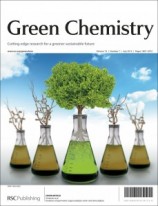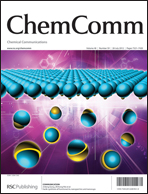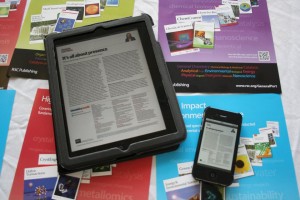The Royal Society of Chemistry will be in Philadelphia for the ACS meeting this month – and we’d love to meet you. Visit us at Booth #701 and find out more about our free content and how the RSC is going from strength to strength in its mission to advance the chemical sciences. Some key free events taking place at booth #701 include:
ChemSpider demo – Monday 20th at 11 am
Discover how you can make the most of our free chemical structure database, providing fast search access to over 26 million structures.
Book signing: The Case of the Poisonous Socks – Monday 20th at 2pm
Celebrated author William H Brock will be at the stand with copies of The Case of the Poisonous Socks, which offers 42 light-hearted tales of chemists and their discoveries. The book will be selling at just $15 (less than half its list price) so don’t miss out!
Join us for coffee – Monday 20th and Tuesday 21st from 11 am
Coffee and other drinks are free while stocks last
There are many more RSC and ChemSpider events taking place around the venue, and a full list is included at the bottom of this blog post.
So come along to Booth #701 and:
- Find out more about our new Impact Factors and rising stars within RSC journals
- Hear the very latest journal news and search the RSC Publishing platform
- Browse over 60 new RSC books and take advantage of a special 30% show discount
- Try ChemSpider, the multiple award winning, chemical structure-based search engine providing free access to more than 25 million chemical structures
- Meet RSC representatives and investigate how you can publish with one of the world’s leading chemical science publishers
- Harriet Gould and Emma Favager from our Commercial Sales team will also be on site to speak to you about Chemistry World, webinars, recruitment, digital options, and more.
We look forward to meeting you in Philadelphia!
| Sunday 19th | 10.50AM – 11.10AM | Putting chemistry into the hands of students – chemistry made mobile using resources from the Royal Society of Chemistry | Room 109B |
| 4.15PM – 4.40PM | Mining public domain data as a basis for drug repurposing | Philadelphia Marriott Downtown, Room 302/303 | |
| Monday 20th | 11.00AM – 12.00PM | ChemSpider demo | Booth #701 |
| 11.00AM – 3.00PM* | Join us for coffee | Booth #701 | |
| 2.00PM – 3.00PM | Book signing: The Case of the Poisonous Socks | Booth #701 | |
| 2.05PM – 2.30PM | Feeding and consuming data to support Open Notebook Science via the ChemSpider platform | Philadelphia Marriott Downtown, Conference Room 307 | |
| 2.30PM – 2.55PM | Approaches for extraction and “digital chromatography” of chemical data – a perspective from the RSC | Hilton Garden Inn Philadelphia, Salon D | |
| RSC Member Reception (by invitation only) | |||
| Tuesday 21st | Sponsorship of Bioconjugate Polymer session (Division of Polymer Chemistry) by RSC journals Chemical Science and ChemComm | ||
| 10AM – 12PM | ChemSpider and You: A workshop exploring how ChemSpider can help you find chemical information (Register via conference website) | Workshop Room 2 | |
| 11.00AM – 3.00PM* | Join us for coffee | Booth #701 | |
| 4.55PM – 5.10PM | ChemSpider compound database as one of the pillars of a semantic web for chemistry | Philadelphia Marriott Downtown, Grand Ballroom Salon H | |
| Young Investigators session dinner co-sponsored by RSC journals Organic & Biomolecular Chemistry and ChemSocRev | |||
| Wednesday 22nd | Sponsorship of Bioconjugate Polymer session (Division of Polymer Chemistry) by RSC journals Chemical Science and ChemComm | ||
| Thursday 23rd | 9.15AM – 9.35AM | Delivering an online service for validating and standardizing chemical structure files using the ChemSpider platform | Philadelphia Marriott Downtown, Franklin Hall 6 |
| 9.35AM – 9.55AM | How can the International Chemical Identifier (InChI) be extended to non-trivial chemicals? | Philadelphia Marriott Downtown, Franklin Hall 6 | |
| 9.55AM – 10.15AM | Serving up and consuming community content for chemists using wikis | Philadelphia Marriott Downtown, Franklin Hall 6 |
While stocks last*













 Individual journal highlights include
Individual journal highlights include 